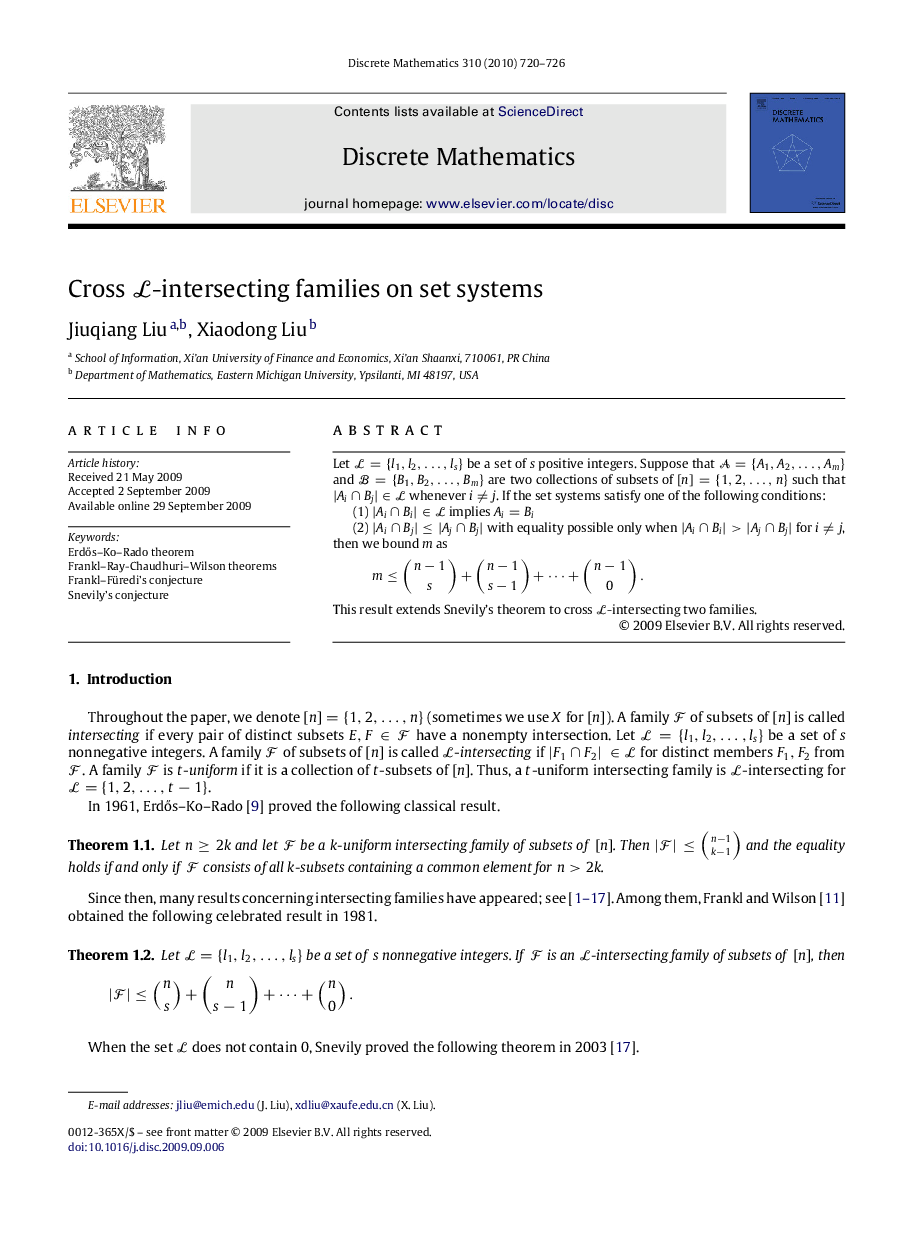| Article ID | Journal | Published Year | Pages | File Type |
|---|---|---|---|---|
| 4648707 | Discrete Mathematics | 2010 | 7 Pages |
Abstract
Let L={l1,l2,…,ls}L={l1,l2,…,ls} be a set of ss positive integers. Suppose that A={A1,A2,…,Am}A={A1,A2,…,Am} and B={B1,B2,…,Bm}B={B1,B2,…,Bm} are two collections of subsets of [n]={1,2,…,n}[n]={1,2,…,n} such that |Ai∩Bj|∈L|Ai∩Bj|∈L whenever i≠ji≠j. If the set systems satisfy one of the following conditions:(1) |Ai∩Bi|∈L|Ai∩Bi|∈L implies Ai=BiAi=Bi(2) |Ai∩Bj|≤|Aj∩Bj||Ai∩Bj|≤|Aj∩Bj| with equality possible only when |Ai∩Bi|>|Aj∩Bj||Ai∩Bi|>|Aj∩Bj| for i≠ji≠j, then we bound mm as m≤n−1s+n−1s−1+⋯+n−10. This result extends Snevily’s theorem to cross LL-intersecting two families.
Keywords
Related Topics
Physical Sciences and Engineering
Mathematics
Discrete Mathematics and Combinatorics
Authors
Jiuqiang Liu, Xiaodong Liu,
